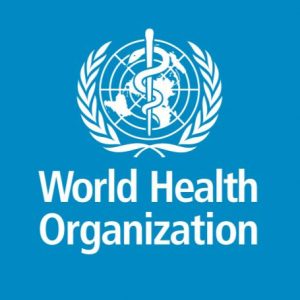 Geneva: A “tsunami” of Omicron and Delta Covid-19 cases will pile pressure on health systems already being stretched to their limits, the World Health Organization warned Wednesday.The WHO said the Delta and Omicron variants of concern were “twin threats” that were driving new case numbers to record highs, leading to spikes in hospitalisations and deaths.”I am highly concerned that Omicron, being more transmissible, circulating at the same time as Delta, is leading to a tsunami of cases,” WHO chief Tedros Adhanom Ghebreyesus told a press conference.”This is and will continue to put immense pressure on exhausted health workers, and health systems on the brink of collapse.”He said the pressure on health systems was not only due to new coronavirus patients, but also large numbers of health workers falling ill with Covid.”The unvaccinated are many times more at risk of dying from either variant,” he added.Earlier, the WHO had said that the risk posed by the Omicron variant is still “very high”, after Covid-19 case numbers shot up by 11 percent globally last week.
Geneva: A “tsunami” of Omicron and Delta Covid-19 cases will pile pressure on health systems already being stretched to their limits, the World Health Organization warned Wednesday.The WHO said the Delta and Omicron variants of concern were “twin threats” that were driving new case numbers to record highs, leading to spikes in hospitalisations and deaths.”I am highly concerned that Omicron, being more transmissible, circulating at the same time as Delta, is leading to a tsunami of cases,” WHO chief Tedros Adhanom Ghebreyesus told a press conference.”This is and will continue to put immense pressure on exhausted health workers, and health systems on the brink of collapse.”He said the pressure on health systems was not only due to new coronavirus patients, but also large numbers of health workers falling ill with Covid.”The unvaccinated are many times more at risk of dying from either variant,” he added.Earlier, the WHO had said that the risk posed by the Omicron variant is still “very high”, after Covid-19 case numbers shot up by 11 percent globally last week.
Omicron is behind rapid virus spikes in several countries, including those where it has already overtaken the previously-dominant Delta variant, the WHO said in its Covid-19 weekly epidemiological update.”The overall risk related to the new variant of concern Omicron remains very high,” the UN health agency said.”Consistent evidence shows that the Omicron variant has a growth advantage over the Delta variant with a doubling time of two to three days and rapid increases in the incidence of cases is seen in a number of countries,” including Britain and the United States, where it has become the dominant variant.
“The rapid growth rate is likely to be a combination of both immune evasion and intrinsic increased transmissibility of the Omicron variant.”However, the WHO highlighted the 29 percent decrease in the incidence of cases observed in South Africa — the country which first reported the variant to the WHO on November 24.It said early data from Britain, South Africa and Denmark — which currently has the world’s highest rate of infection per person — suggested there was a reduced risk of hospitalisation for Omicron compared to Delta.However, further data was needed to understand Omicron’s severity in terms of clinical markers, including the use of oxygen, mechanical ventilation and death.More data was also required on how the severity might be being impacted by previous Covid infection, or vaccination.
